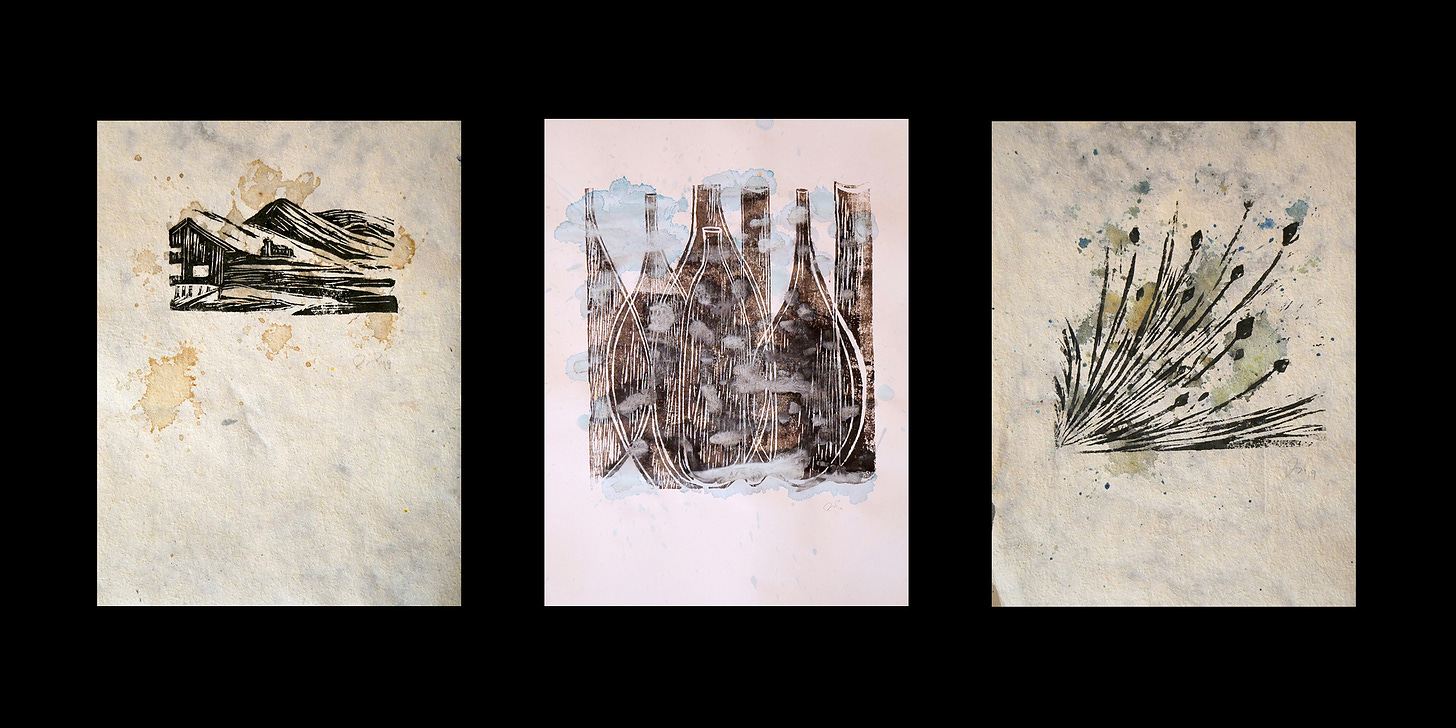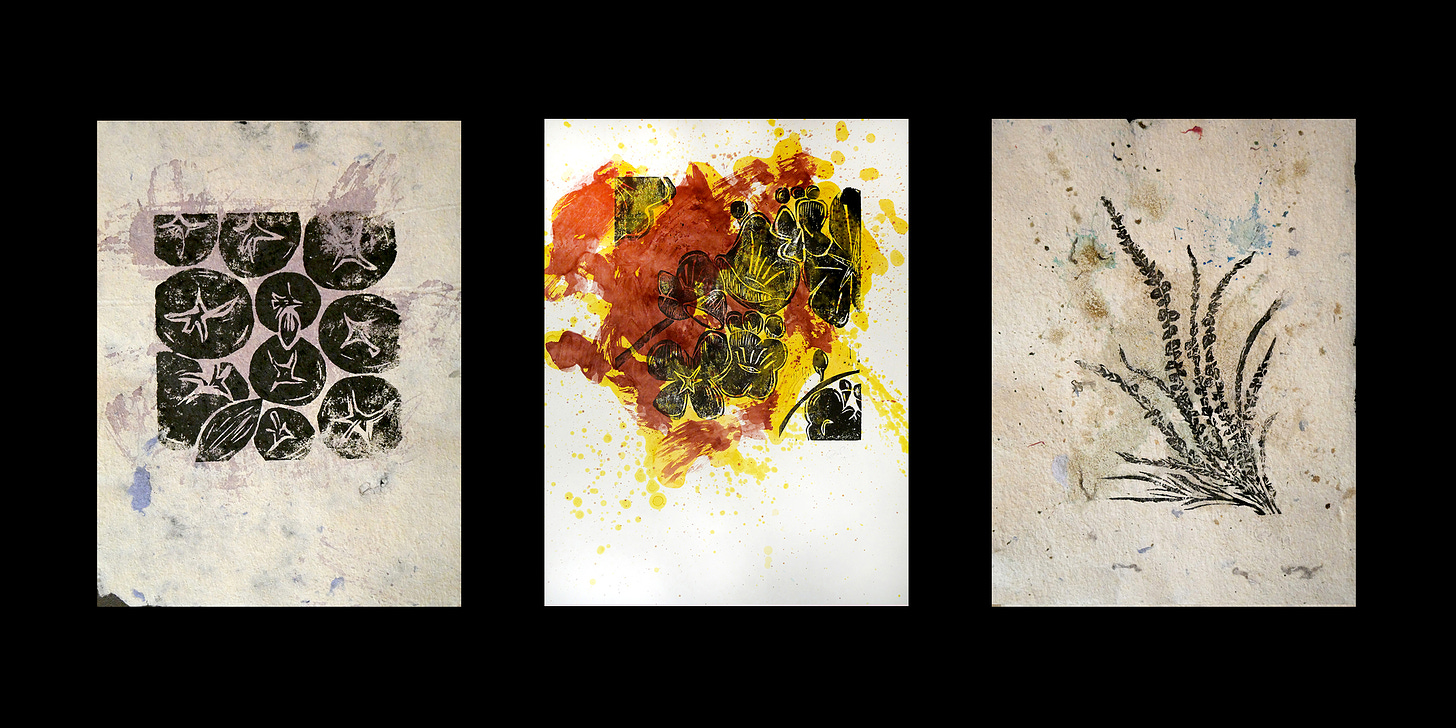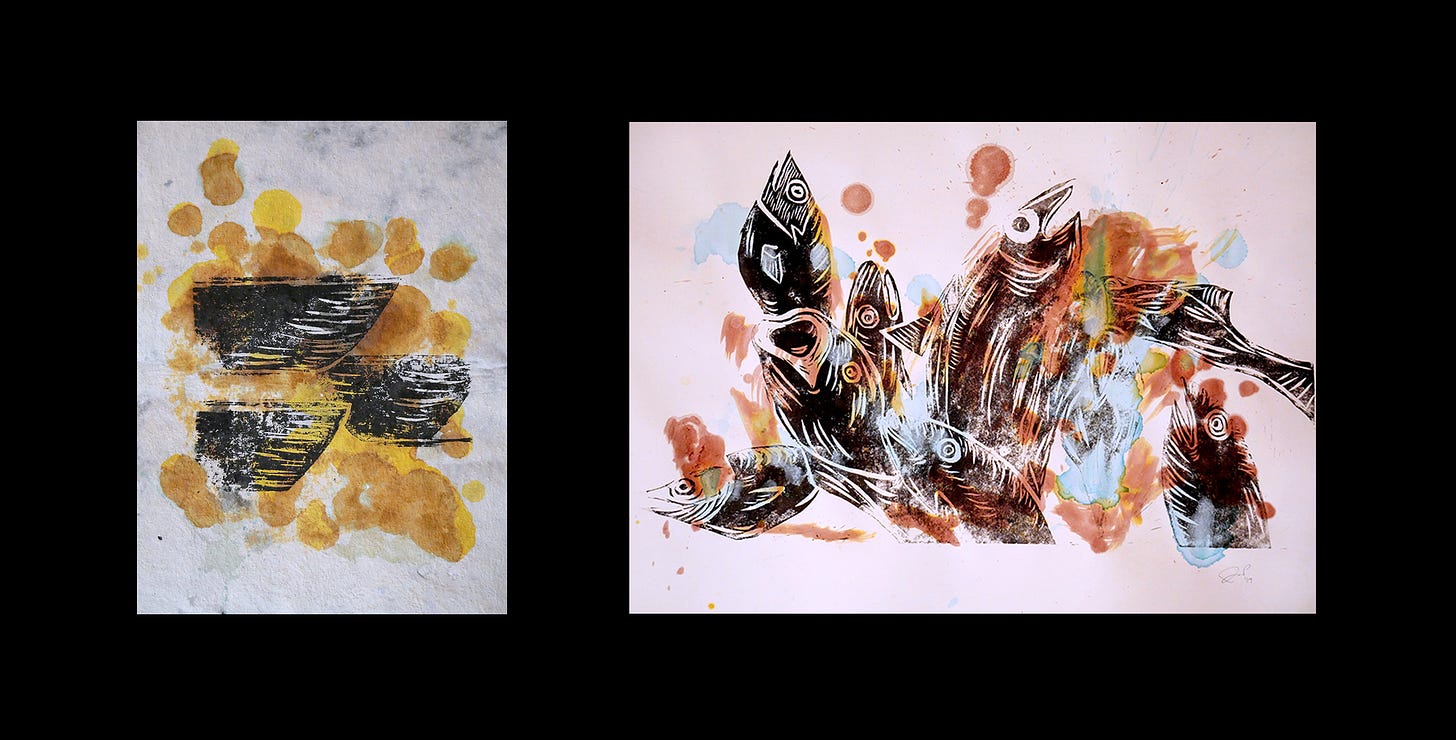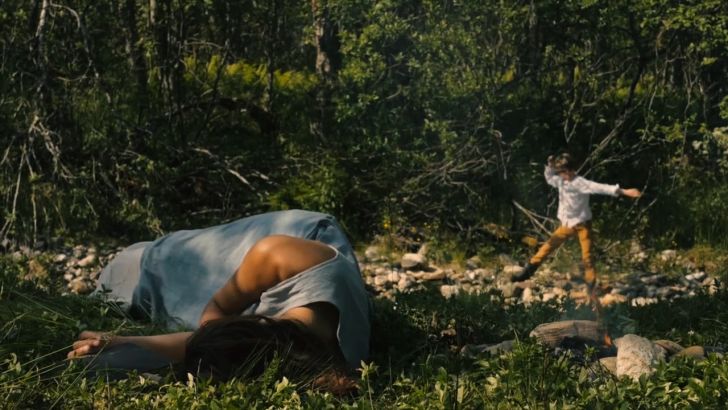Laura, or Scenes from a Common World: a Limited Screening
Watch this week! "Laura..." is a cinematic poem exploring one woman’s struggle to make herself at home in the world.
This week (November 18-25, 2024) Juke is thrilled to provide our readers with a limited screening of Laura, or Scenes from a Common World, a short film directed by Charles M Pepiton, written by Damon Falke, with cinematography, original music, and editing by Wes Kline.
I wish we could immerse you into the gallery installation of the film as it was presented in 2019. There, the film was shown in three channels, on three walls, enveloping the viewer, and it was presented alongside a gorgeous series of prints from Rebekah Wilkins-Pepiton. We’re constrained by the digital format here on Juke, but we’ve tried to give you a taste of what that installation was like, with Rebekah’s prints below, and two introductions (one from Charles Pepiton and the other from Damon Falke, the film’s writer) to provide some background before you watch the film at the bottom of the page.
Make sure to watch by November 25th! This screening is only available this week. —Tonya M
You can watch the film trailer (1 min, 42 secs) here:

Laura, or Scenes from a Common World was created collaboratively in Tromsø, Norway, in June 2015, by an international team of artists. The process was a conversation between the landscape of the Barents Region of Northern Norway and our various artistic disciplines.
The region’s shifting light and steadfast mountain-scape offer a counterpoint for Laura’s struggle to emerge after her experience of loss. This is a landscape that welcomes Laura’s isolation, but also teaches her to embrace the quiet consequence of the common world around her. Laura is a foreigner to Norway's birch forests and fjords. She is equally at odds with what she finds among Tromsø’s public spaces and docks. Her clothing is wrong for the climate. Her features are far too Mediterranean. Through the course of the film, viewers mark her journey from separation toward empathy, from transience toward a life more rooted in place and other people.
The film unfolds as a cinematic poem with colliding images, words, and evocative physicality. This is a film that invites audiences to complete the creative act. Poet Anne Micheals notes, "not two to make one, but two to make the third, just as a conversation can become the third side of the page." We invite audiences to share in this conversation. We hope viewers will pause to contemplate as Laura stops to connect with the Northern landscape and the common world around her.
-Charles M Pepiton, director

Naturally stories of love and loss are old, maybe the oldest stories we have, and after I started writing Laura, I remembered reading in college “Apollo and Daphne,” as recorded by the Roman poet Ovid in Metamorphoses. It is a book filled with stories of change, many of them involving love. Ovid’s stories are never static. A single encounter is full of passion, images, consequences, echoes of other myths and characters, allusions and whispers for us to hear and imagine. I read again of Apollo being overwhelmed by love, released as it was from Eros’s golden tipped arrow and of Daphne’s inevitable flight after being struck by a second arrow, only this one was dull and lead tipped. Similar to Daphne, Laura flees as a consequence of love. We learn this in the beginning of the poem when she recalls her boy on a bridge and how after he is gone there is suddenly “nothing.” Yet Laura is not a replication of Daphne. Her return home begins not with a plea but after an unexpected practice of attentiveness. We notice when she remembers peeling apples or looks outside of a window or recalls a young girl who could not sleep because of a cuckoo bird. There are no demands made by these moments or the people in them. Rather, Laura must receive the inherent gift within them. For her to do this, she must make an admission of the gift’s reality, and I believe stopping is such an admission.
-Damon Falke, writer

Update: Our screening has ended!
Thanks so much to all the Juke readers who watched Laura, or Scenes from a Common World this week. And thanks again to Charlie Pepiton for making the film available to us. You can still watch the trailer above and follow this film and Charlie Pepiton’s other work at SquareTopTheatre.org.
To read more about this film, and other films developed by the same creative team, visit the Square Top Theatre website.
To see more artwork from Rebekah Wilkins-Pepiton, visit her website.
Charles M Pepiton is a film and theatre director, working as Producing Artistic Director at Square Top Theatre and Professor of Theatre & Dance and Robert K. and Ann J. Powers Chair of the Humanities at Gonzaga University. His work includes Without Them I Am Lost, Climbing Eros, and Koppmoll, among others. Read more at www.cpepiton.com and www.squaretoptheatre.org.
Rebekah Wilkins-Pepiton is a multi-disciplinary artist, art educator, and lover of the outdoors. She lives in Washington State. More about her work can be found on her website: www.bekawp.com
Damon Falke is the author of, among other works, The Scent of a Thousand Rains, Now at the Uncertain Hour, By Way of Passing, and Koppmoll (film). He lives in northern Norway.
Wes Kline is an artist and musician. He has taught photography and film at New College of Florida, New Mexico State University, the University of Florida, and at St. Lawrence University. He earned his MFA in Studio Art from the University of Illinois, Chicago in 2005. His research and work looks at time, ecology, language and performance, often in relation to experimental documentary. He has shown his work nationally and internationally and teaches courses in photography and extended media, including video, installation and sound.
If you enjoyed this post, hit the ♡ to let us know.
If it gave you any thoughts, please leave a comment.
If you think others would enjoy it, hit re-stack or share:
If you’d like to read more:
And if you’d like to help create more Juke, upgrade to a paid subscription (same button above). Otherwise, you can always help with a one-time donation via Paypal or Venmo.






